By Dan Gifford


USA – -(Ammoland.com)- George Washington University law professor Bob Cottrol took issue with this comment of mine made yesterday:
“On reflection, the fairly recent rescue of the Second Amendment from virtual annihilation in the face of the many specious arguments put forth by academics and cultural change activists is truly amazing. That progress is due to some truly awesome legal talent that has placed Second Amendment rights in the light of intellectual honesty.”
Bob wrote …
“I would dispute your history somewhat. It was intellectual honesty on the part of a number of academics, many of them liberal, a few of them personally anti-gun (with major kudos going to Sandy Levinson} that put the Second Amendment back on the road to recovery and laid the groundwork for Alan Gura’s victories in Heller and McDonald.”
Bob is absolutely correct. My wording should have made clear that any implied intellectual dishonesty among academics referred to this:
“There used to be an almost complete scholarly and judicial consensus that the Second Amendment protects only a collective right of the states to maintain militias. That consensus no longer exists — thanks largely to the work over the last 20 years of several leading liberal law professors, who have come to embrace the view that the Second Amendment protects an individual right to own guns.” https://www.nytimes.com/2007/05/06/us/06firearms.html?pagewanted=all&_r=0
Those holding that former consensus tended to be intolerant of any contrary view (and many remain so). Academics who dared suggest that the Second Amendment was an individual right were attacked.
University of Texas law professor Sandy Levinson, whom Cottrol mentioned, received progressive heat for his individual right position in The Embarrassing Second Amendment. https://www.guncite.com/journals/embar.html
Harvard law professor Alan Dershowitz was taken to academia’s politically correct woodshed during the mid 1990s for this comment made to me during an interview:
“Foolish liberals who are trying to read the Second Amendment out of the Constitution by claiming it’s not an individual right or that it’s too much of a public safety hazard don’t see the danger in the big picture. They’re courting disaster by encouraging others to use the same means to eliminate portions of the Constitution they don’t like.” https://www.uclalawreview.org/pdf/56-5-5.pdf
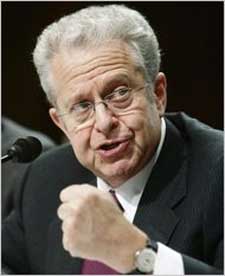
Then, the big kahuma liberal Harvard law prof weighed in:
“Laurence H. Tribe, a law professor at Harvard, said he had come to believe that the Second Amendment protected an individual right.” https://www.nytimes.com/2007/05/06/us/06firearms.html?pagewanted=all&_r=0
None of Tribe’s new thinking changes his view that gun-control measures are “plainly constitutional,” but his shift has been enough to anger gun control advocates. https://readersupportednews.org/opinion2/265-34/15098-a-response-from-laurence-tribe-in-the-wake-of-newtown
As I learned while mingling with and reporting on campus protesters and their political mentors during the 60s, progressive political orthodoxy is a defacto religion that is largely devoid of intellectual honesty.
“The overwhelming weight of scholarly opinion supports the near-unanimous view of the federal courts that the constitutional right to be armed is linked to an organized militia,” said Dennis A. Henigan, director of the legal action project of the Brady Center to Prevent Gun Violence. “The exceptions attract attention precisely because they are so rare and unexpected.”
“Contrarian positions get play,” Carl T. Bogus, a law professor at Roger Williams University, wrote in a 2000 study of Second Amendment scholarship. “Liberal professors supporting gun control draw yawns.” https://www.nytimes.com/2007/05/06/us/06firearms.html?pagewanted=all&_r=0
Whatever, those “exceptions” began a sea change:
In March [2007], for the first time in the nation’s history, a federal appeals court struck down a gun control law on Second Amendment grounds. Only a few decades ago, the decision would have been unimaginable. https://www.nytimes.com/2007/05/06/us/06firearms.html?pagewanted=all&_r=0
The number of academics who contributed to the aforementioned court win is too long to list here. But I have been told many times it and subsequent court victories would not have been possible sans the efforts of one man.
That man is Don Kates.
Attorney Chuck Michel explains: https://www.ammoland.com/2014/05/don-kates/
Don Kates is a catalyst in the chemical reaction of criminology and Second Amendment constitutional law scholarship. More than most people, Kates efforts were responsible for the reconfirmation of that individual right by the United States Supreme Court.
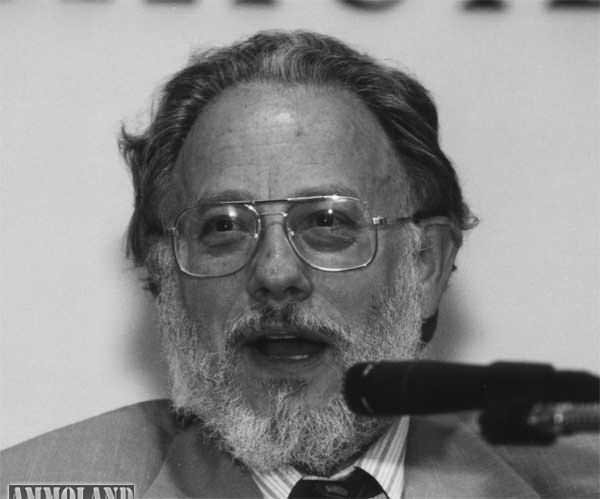
I’ve known and worked with Don for over 20 years. I’m proud to call him a colleague, mentor and friend.
An Effort, Then An Avalanche
In gun control’s golden era, Kates was a nearly lone voice in the constitutional law wilderness.
At a time when an orchestrated attempt was in full drive to redefine the Second Amendment into uselessness and to abolish private gun ownership, Kates was writing and lecturing the next generations of scholars on exactly the opposite. Holding onto classic republicanism/liberalism, Kates spoke media heresy in proclaiming that the American constitution expressly secured an individual right to arms. But Kates illustrated his points to historical excess, noting that in antiquity the only disarmed people were slaves. Kates wove these historical facts into the same fabric of understanding as had the authors of the Bill of Rights. He would demonstrate with current and ancient news contrarian notions, such as all modern revolutions were by armed masses fighting a superiorly armed government and that disorderly individual action succeeds better than utopian order directed from above (what the Chinese government perpetually calls a “harmonious society”).
It was through Kates’ work, both as a constitutional scholar and criminologist, that he largely ignited the counter revolution against the American gun control movement. In 1983, the Michigan Law Review published his seminal paper titled Handgun Prohibition and the Original Meaning of the Second Amendment. This pivotal essay, printed in a “top ten” law journal, was the catalyst within constitutional law circles. Largely ignored along with the Third Amendment, not much had been written about the Second, and the gun control movement’s financed “scholars” were actively dismissing any notion of an individual right to arms. The Michigan Law Review was widely read, and Kates’ piece caught the attention of many fellow liberals (Kates being a classic “liberal,” a close cousin to modern libertarians).
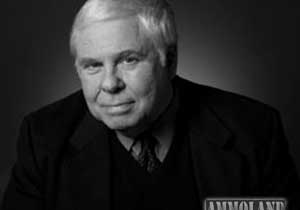
One of those people was Sanford “Sandy” Levinson, who holds the Garwood Chair in Law at University of Texas Law School.
“There’s no doubt that Don’s Michigan article influenced many of its readers, given the care he took with his scholarly sources,” Levinson said in email. “I’m sure that’s one reason that the Michigan Law Review accepted it, and it was a real breakthrough.”
Levinson himself later authored a Yale Law Journal article titled the Embarrassing Second Amendment, which is considered by many the turning point in the constitutional law Second Amendment debate. Levinson’s Yale paper (ironically, Kates studied at Yale) echoed Kates conclusions concerning the individual rights theory of the Second Amendment, but by appearing in one of the top law journals, it attracted the attention of everyone and launched an avalanche of academic digging into the origins of the Second Amendment. Famed constitutional scholars followed – William van Alstyne, Akhil Amar, Leonard Levy. All the scholarship that Kates indirectly ignited eventually fueled legal briefs filed before the Supreme Court in District of Columbia v. Heller, the 2008 case that reaffirmed your right to arms (Kates was an advisor to the plaintiffs’ counsel in the Heller case, namely Alan Gura).
Southern Insights
Kates’ thinking, cemented in classical history, may have been honed by his years as an “activist” lawyer in the South. While the American civil rights movement was flowering, Kates was providing legal services to the poor, specialized in civil rights and police misconduct litigation, working with famed lawyer William Kunstle. In the deeper South, law enforcement was often indistinguishable from the Klan (their memberships overlapped greatly in certain regions) and wherever Dixiecrats held power, abuse of blacks was routine and disarmament common.
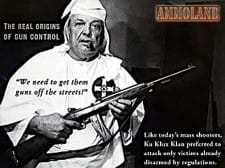
One cannot review, much less have lived in the reconstruction South without knowing the history of violence against blacks and how gun control played a role. Most southern gun control laws were either written specifically to make black gun ownership expensive and inconvenient, or were only applied against blacks as situations required. This was not lost on Kates, who in a 1986 speech noted that the ancient Romans disallowed arms to be owned by “nonvirtuous citizens,” which meant both slaves and resident aliens. That same thinking pervaded the antebellum South, where slaves could be disarmed at will and often were only allowed arms if specifically permitted by their owners. Such sentimentalities lingered below the Mason-Dixon Line as Reverend King spoke of his dream and Kates pursued police who perpetuated discriminations.
Though Kates’ view of gun rights being civil rights was firmly in his mind before the civil rights era, his experiences in the South cemented his understanding. He and other civil rights workers were always armed (Kates reports carrying a .357 and a barely legal sawed-off shotgun).
“We civil rights workers carried guns routinely for protection,” Kates said over the phone. “Everyone understood that this was part of protecting your free speech and organizational activities.”
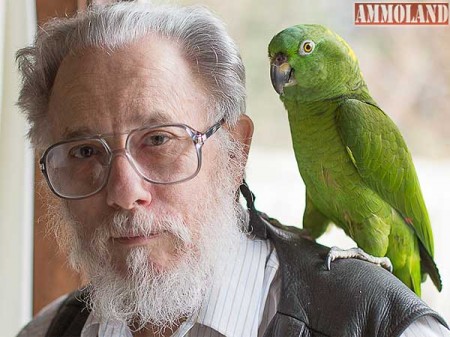
He also witnessed southern blacks using guns with good results in self-defense. Though downplayed by the media, Kates notes that Reverend Martin Luther King lived as long as he did because he was constantly surrounded by armed people.
Southern politician and police immoralities also figure into Kates’ social thinking. During the 1980s, he noted that many in the gun control movement and news media campaigned about the “immorality” of private gun ownership, suggesting instead that an orderly society run by elites was preferable. The boundaries between his observation of gun control oligarchy and Dixiecrats may not have been accidental. In a time when “modern progressive thinking” championed more control and less freedom for gun ownership, Kates was happy to point out how poorly that worked in the past, and how the hoi polloi managed to do better without such guidance.
Criminology
The gun control movement lost their constitutional argument largely due to Kates initial work which, like many moments in history, started with one man telling the truth.
The gun control movement also lost many of their criminological arguments thanks to Kates.
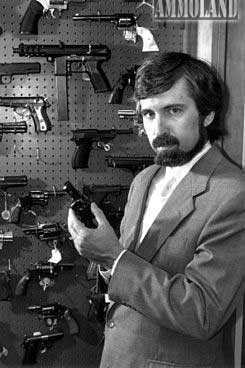
Kates has worked within criminological circles for decades, collaborating with notables like Gary Kleck, a criminologist at Florida State and author of Targeting Guns ( tiny.cc/jzu0tx ) , which is required reading for anyone seriously interested in the realities of gun policy (Kates has co-authored books with Kleck, as well as over half a dozen on his own or in collaboration with others).
In full frontal contrarian style, Kates calls-out almost everything the gun control movement says, from their belief that only the government should have guns (“They believe that only he government is smart enough to kill people”) to self-defense and the protection of children (“It would be real orderly … all [a school shooter] would have to do is shoot all the children sitting under their desk … rather than the disorderly thing of having children run in all directions.”)
Kates’ logic has cut the gun control movement more precisely than a surgeon.
Be the issue historical perspective of revolutions, modern criminology on self-defense, or the meaning of articles in the Bill of Rights, his depth, precision and willingness to confront misleading gun control propaganda has triggered a serial collapse in the movement itself. Worse than his own incisions into the gun control movement, Kates taught at least two generations how to think critically about the law and crime, and how to dissect rhetoric from the Brady Campaign, the Violence Policy Center, and even the cabal of prohibitionist lawyers in Kates back yard, the Law Center to Prevent Gun Violence.
Take this bit of Kates opposition analysis. “The same people who say it is wrong for people to defend themselves also say that it doesn’t work.” He continues this exploration by observing that gun control advocates believe that only the government/police should have guns … despite the fact that armed self-defense is supposedly ineffective. The gun control movement has always been rife with self-contradictions, which Kates shows impish delight in exposing.
Legacy and Future
A man’s future and legacy are often related. Kates helped spark a resurgence in educated wisdom and constitutional obedience by showing how to combat rhetorical misdirection with wounding accuracy. He continues down this same road today, as the editor of Firearms and Violence: Issues of Public Policy ( tiny.cc/u7u0tx ) for the San Francisco based Pacific Research Institute. He also teaches constitutional law and lectures on criminology at Stanford University, Oxford, or the University of Melbourne, impregnating young minds with the seed of honest and informed perspective about the most fundamental of rights.
The seeds took root in many minds, including mine. Thank you Don. Thank you.
You can read many of Don’s opinions on various subjects at his CalGunLaws.com blog: Che Talk ( https://www.calgunlaws.com/calgunlaws-blog1/che-talk/ ) .




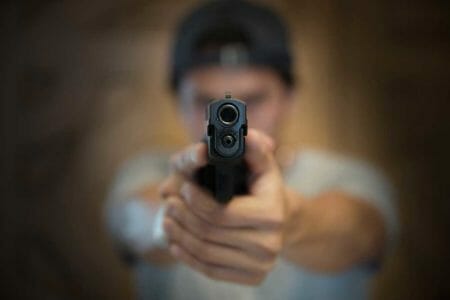
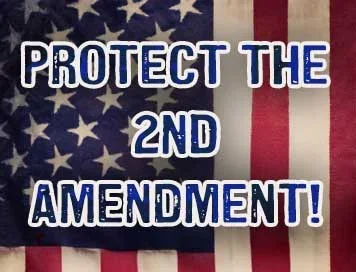

If the gungrabbers think lawabidding firearms owners will ever be disarmed they are just pissing in the wind. Just who would do the disarming ?
Now lets De-Fund the ATF, and lawmaking by administrative means.